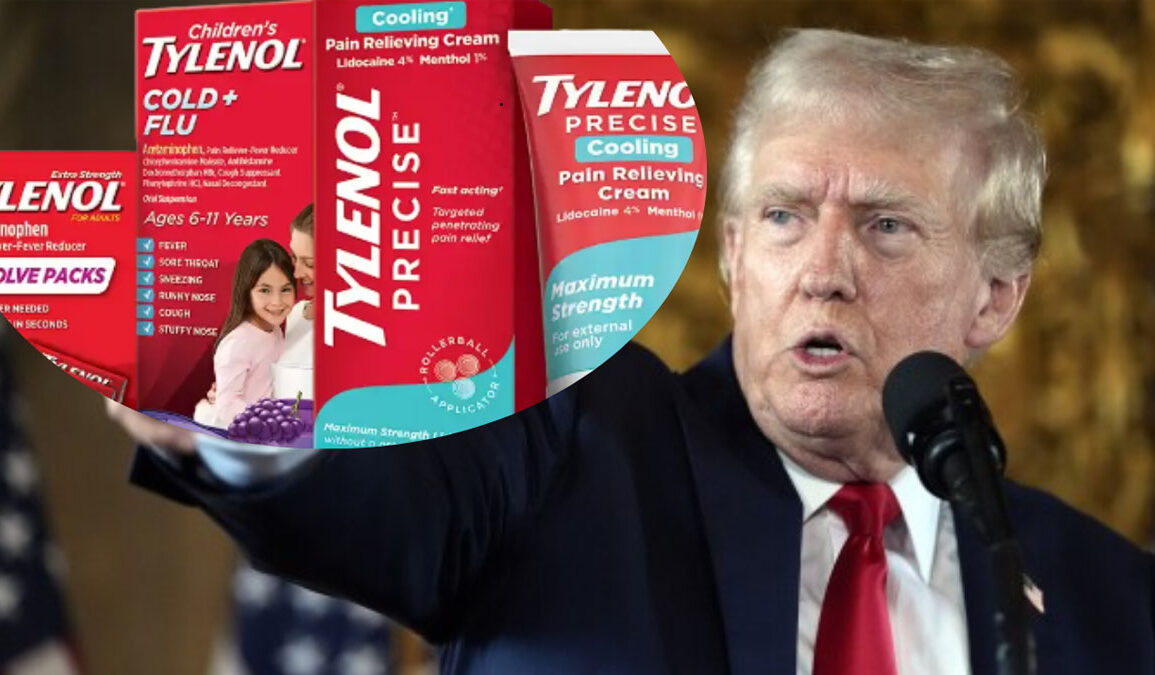Trump’s Announcement and Its Context
President Donald Trump shook the medical community on Monday when he stood in the Roosevelt Room of the White House and urged pregnant women not to take acetaminophen, the active ingredient in Tylenol. “Taking Tylenol is not good,” Trump declared. He said the Food and Drug Administration would notify doctors that acetaminophen during pregnancy may carry “a very increased risk of autism.” Trump stressed that women should avoid the drug unless absolutely necessary. “They are strongly recommending that women limit Tylenol use during pregnancy unless medically necessary. That is, for instance, in cases of extremely high fever that you feel you can’t tough it out,” he explained.
Flanked by Health and Human Services Secretary Robert F. Kennedy Jr., FDA Commissioner Dr. Marty Makary, NIH Director Dr. Jay Bhattacharya, and CMS Administrator Dr. Mehmet Oz, Trump linked his comments to a broader critique of standard pediatric care. He questioned the practice of vaccinating newborns for hepatitis B, saying, “I would say, wait until the baby is 12 years old and formed.” He argued that infants are overwhelmed by “too much liquid, too many different things” given through early vaccination schedules.
Trump called the rising rates of autism a “horrible, horrible crisis” and one of “the most alarming developments in history.” He argued that the United States cannot afford to move slowly on the issue. “We have to move quicker,” he said, thanking Kennedy for bringing autism “to the forefront of American politics, along with me.”
What the Science Currently Says
The scientific picture is far from settled. A review of 46 studies published in BMC Environmental Health found “strong evidence of an association” between acetaminophen use in pregnancy and autism. However, the authors were clear that association does not equal causation. They recommended “judicious acetaminophen use — lowest effective dose, shortest duration — under medical guidance.”
Other studies have reached opposite conclusions. A large 2024 Swedish study involving 2.4 million children found no link between prenatal acetaminophen exposure and autism, ADHD, or intellectual disabilities. Autism rates have risen significantly in the past two decades, but acetaminophen use has remained steady, suggesting that other factors are at play. Researchers often point to genetics, environmental exposures, expanded diagnostic criteria, and better screening as major contributors.
Some experts have raised concerns about how Trump’s announcement was framed. Ann Bauer, an epidemiologist at the University of Massachusetts who worked on a Harvard-led study, acknowledged a possible risk signal but urged caution. “I’m a little concerned about how this message is going to come because I think they may be jumping the gun,” Bauer said. “I think those of us in the research community would like to see stronger evidence.”
Pushback from the Medical Establishment
Reaction from professional groups and physicians was swift and sharp. Dr. Steven J. Fleischman, president of the American College of Obstetricians and Gynecologists, issued a statement saying, “Today’s announcement by HHS is not backed by the full body of scientific evidence and dangerously simplifies the many and complex causes of neurologic challenges in children.”
The Autism Science Foundation called the announcement “dangerous.” Its president, Alison Singer, said, “No new data or scientific studies were presented or shared. No new studies have been published in the literature. Instead, President Trump talked about what he thinks and feels without offering scientific evidence. It took me straight back to when moms were blamed for autism. That was shocking. Simply shocking.”
David Mandell, a psychiatric epidemiologist at the University of Pennsylvania, told AFP that “the possible risks posed by taking such pain relief while pregnant seem to be lower than the risk of having an uncontrolled infection during pregnancy.” He emphasized that understanding the interplay between genetics and environmental factors is “an area of critical research,” but noted that rigorous studies would take “decades of study and funding.”
Dr. Paul Offit, a pediatrician and former CDC vaccine adviser, went further, calling Trump’s advice to “tough it out” irresponsible. “That only puts children at higher risk, especially with fever in the first trimester,” Offit said. Dr. Arthur Caplan, a bioethicist at NYU, described the announcement as “the saddest display of a lack of evidence, rumors, recycling old myths, lousy advice, outright lies, and dangerous advice I have ever witnessed by anyone in authority in the world claiming to know anything about science.” He added that what was said was “not only unsupported and wrong but flat out malpractice in managing pregnancy and protecting fetal life.”
Tylenol maker Kenvue also rejected the claims outright. “We believe independent, sound science clearly shows that taking acetaminophen does not cause autism,” the company said in a statement. “We strongly disagree with any suggestion otherwise and are deeply concerned about the health risks and confusion this poses for expecting mothers and parents.”
Trump and Kennedy Challenge the Status Quo
Despite the criticisms, Trump and Kennedy remain undeterred. Kennedy said HHS would launch a public service campaign about Tylenol use in pregnancy, encourage cautious prescribing, and push for a label change on acetaminophen products. The FDA also announced it would begin sending letters to physicians noting that while associations have been observed, “a causal relationship has not been established.”
For Trump and Kennedy, the lack of definitive science is precisely the problem. Trump suggested that communities with little access to acetaminophen have lower autism rates, saying, “In others, autism now affects one in 12 boys.” Kennedy has long argued that environmental factors have been downplayed in autism research. He dismissed the explanation that rising diagnoses are simply due to broader definitions as a “canard.”
Their position is not without resonance. Many parents of autistic children have felt frustrated with what they view as a slow-moving medical establishment unwilling to challenge assumptions or pursue controversial questions. Trump cast the matter as one of urgency: “This administration is working together to ask big questions about why our nation’s children are getting sick so fast too often. Medicine is doing small little studies, giving us answers we already knew, but we’ve got to make a difference,” Dr. Makary echoed.
Absence of Evidence Is Not Evidence of Absence
The controversy highlights a fundamental tension. Critics accuse Trump and Kennedy of irresponsibility, while they argue the medical establishment is guilty of complacency. Autism remains a condition with no single known cause, and decades of research have yet to produce clear answers.
Trump’s strategy is to force the issue. By making bold statements, he has ensured that acetaminophen — once considered the safest pain reliever for pregnancy — is now under intense public scrutiny. Whether the science ultimately vindicates him or not, he has succeeded in reopening a debate that many in the medical field preferred to leave settled.
As Trump put it, “There’s no downside.” For him and Kennedy, the worst outcome is more research, more testing, and more attention to what they describe as one of the greatest public health crises of our time.
NP Editor: The only way we have a chance to see the connection is if women stop taking Tylenol during pregnancy. Since some of the studies have indicated a connection, why not be cautious.
But more importantly, he is shaking up a smug and stagnant status quo.








